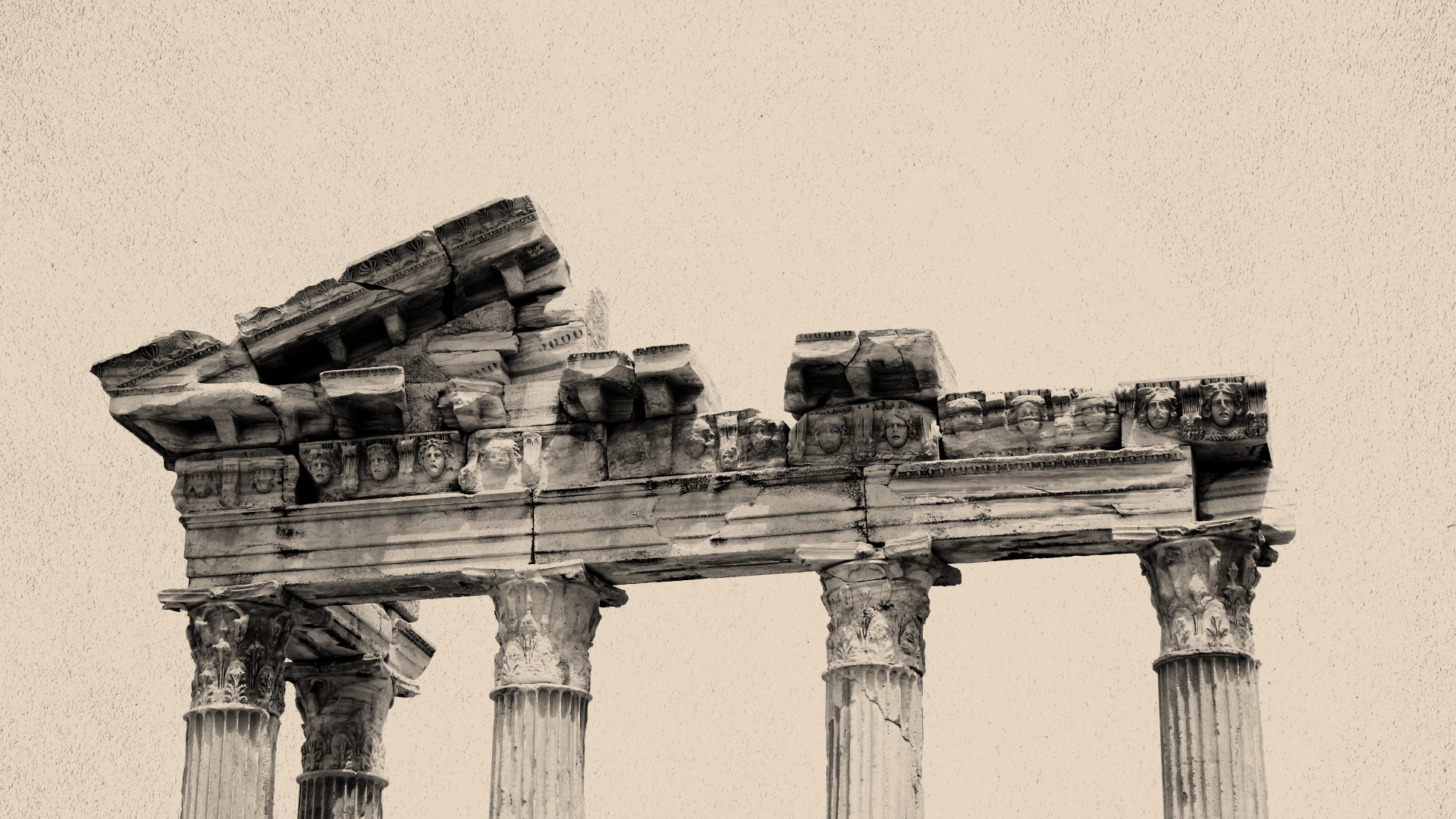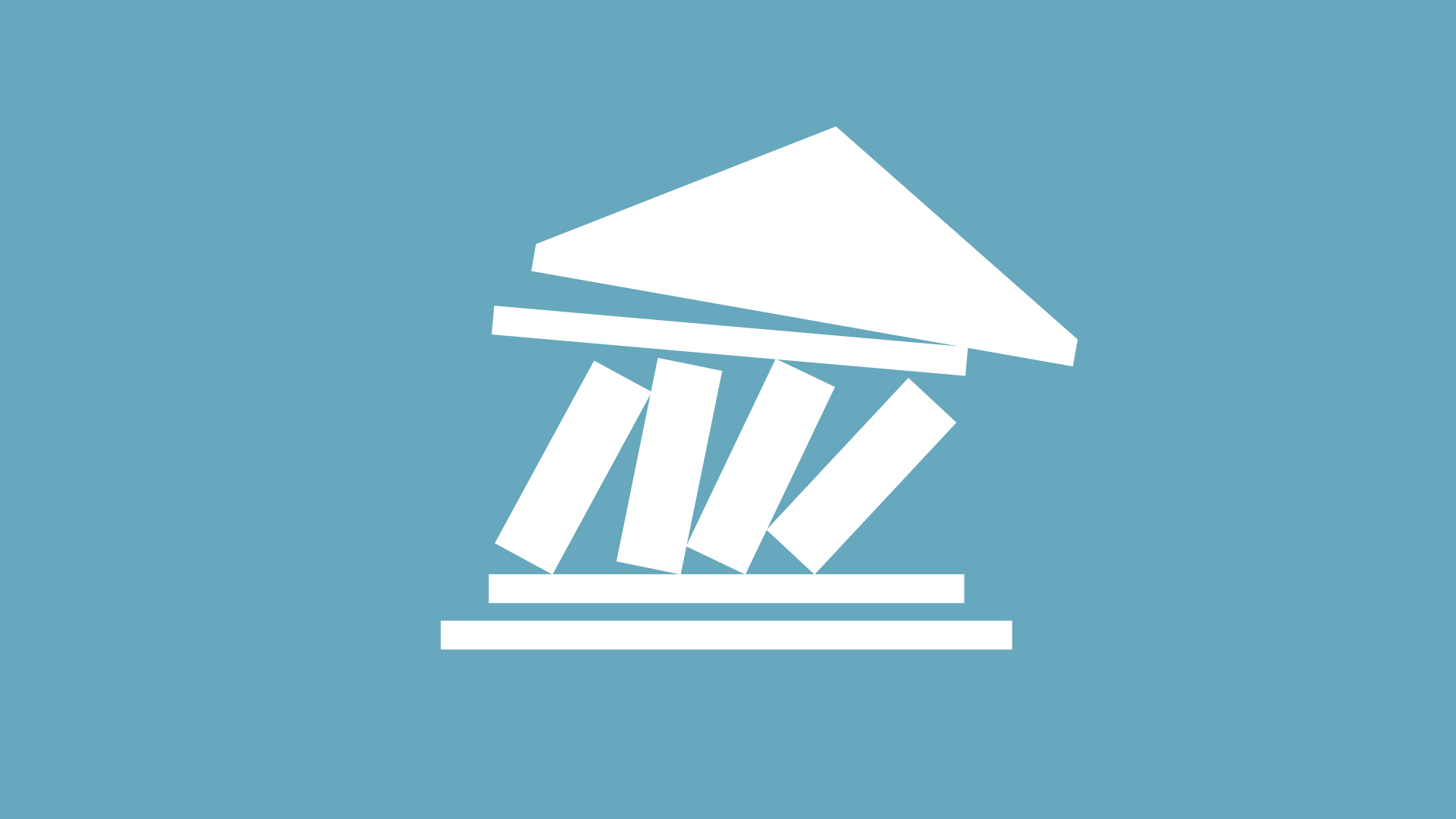Does Democracy Have a Future?
Athens is regarded as the birthplace of democracy, though it’s unlikely that ancient Greeks would recognize our 21st-century version. Where is today’s capitalist democratic system headed, and can it live up to its promise of being efficient, rational and fair?
Democracy is often thought to be the best or fairest form of government in a list of bad alternatives. But is the democracy that prevails in the world today really a good option anymore?
The word democracy has its origin in Greek, where demos means “people” and kratia means “power” or “rule.” Dictionaries define it as a form of government in which the people have a voice in the exercise of power, typically through elected representatives.
But if democratically elected officials fail to be true representatives of the people, is it still democracy as originally intended? Or does the real exercising of power lie in the hands of a few—the elite who, for reasons of self-interest, prefer to privilege the will of private investors and big corporations over the will of the people?
If so, then perhaps the very idea of democracy has been sold out from under the many who trusted in it. Around the world, we see widespread disillusionment as the democracy we may have thought we had becomes an increasingly rare animal.
Global Dissatisfaction
An April 2019 survey by the nonpartisan Pew Research Center found that “many across the globe are dissatisfied with how democracy is working.” Based on responses from 27 countries, it reported that “discontent is tied to concerns about the economy, individual rights and out-of-touch elites.” Just over half of respondents were “not satisfied” with the democracy they live under. Perspectives on freedom of speech and opportunities for improving your lot in life were interpreted as positive aspects of living in a democracy, yet 61 percent said the idea that elected officials “care what ordinary people think” did not well describe their country.
Levels of satisfaction do vary according to where people live. The survey notes, for example, that more than six in ten Swedes and Dutch are “satisfied with the current state of democracy.” But large majorities in Italy, Spain and Greece, which have experienced economic challenges in the post-financial-crisis world, are dissatisfied. It also points out that in Europe, the sense of how democracy is performing “is tied to views about the EU, opinions about whether immigrants are adopting national customs[,] and attitudes toward populist parties.”
The prevailing sense of frustration at political parties and politicians was manifest in that 60 percent of all respondents felt that “no matter who wins an election, things do not change very much,” while 54 percent believed that “most politicians are corrupt.”
Certainly, anger with politicians, the pace of social change, and economic and immigration concerns have all played a part in helping a wave of antiestablishment, populist leaders to flourish in recent times. As the survey points out, numerous organizations have recorded global downturns in the health of democracy. The findings also chime with those of scholars. For example, in Journal of Democracy (July 2016) Roberto Stefan Foa and Yascha Mounk pointed to a dangerous discontent with democracy in North American and Western European societies.
What the Pew research suggests is that while ideas central to liberal democracy may remain popular, commitment to democracy can still quietly become weak. Perhaps one reason is that the democracy people thought they had is not what they’re actually experiencing.
“Anger at political elites, economic dissatisfaction and anxiety about rapid social changes have fueled political upheaval in regions around the world. . . . Views about the performance of democratic systems are decidedly negative in many nations.”
Chomsky on Neoliberalism
The Pew survey results are troubling: out-of-touch elites; concern about the economy; corrupt politicians who don’t really care about the people; concern that nothing changes, even with new leadership. Still, some commentators argue that the results are not only unsurprising but that these conditions are actively promoted by the system.
One such longtime commentator, particularly in relation to the United States, is Noam Chomsky. Now 90 years old, Chomsky has been described as an anarcho-syndicalist or a libertarian socialist. He finds the recent spread of ultranationalists, autocrats and so-called populists eerily reminiscent of 1939, when fascism planted the heels of its jackboots in Europe.
Chomsky, who from childhood has stood firmly on the left side of the political spectrum, is a constant critic of neoliberalism (“the Washington consensus”), the major political-economic model of our times: “The neoliberal Washington consensus is an array of market oriented principles designed by the government of the United States and the international financial institutions that it largely dominates, and implemented by them in various ways.” It’s a claim that clearly not all would agree with. But given the undeniable fact that a disproportionate amount of wealth is retained in the hands of a minuscule few, Chomsky’s political views continue to resonate in some circles.
Chomsky suggests that the neoliberal doctrine—which he says is neither new nor true to the original doctrines of liberalism—is essentially about a handful of elites controlling public opinion, social life and self-serving market principles to maximize their personal profits. Neoliberalism is often associated with Ronald Reagan and Margaret Thatcher; it operates most effectively, the argument goes, in a formal electoral democracy.
Robert W. McChesney, a professor at the University of Illinois, contends that neoliberalism is at its most eloquent when it sounds as if it’s doing good for the poorest in society or addressing environmental concerns, despite the fact that its policies primarily benefit a few wealthy individuals and large corporations. In Chomsky’s assessment, the prevailing thrust of the system is decidedly not led by those concerns, despite plenty of well-meaning individuals who do genuinely seek to be public servants.
Given the disproportionate distribution of wealth in society, is it possible that neoliberal principles have become enshrined within democracy precisely because they do serve the self-interest of the wealthy few?
It should be noted that not all those whom Chomsky labels “neoliberal” would necessarily define themselves as such. Likewise, many disagree with him about the extent of power that a small elite exercises over large democracies. Still, several of Chomsky’s contentions chime disconcertingly well with Pew’s findings: many Westerners are growing increasingly concerned about corrupt and detached elites within democracies, resulting in a growing level of dissatisfaction with capitalist democracy in general.

Contradictions in the Capitalist “Free” Market
Neoliberalism’s platform, in Chomsky’s view, is the free market—characterized by liberalizing trade and finance, by allowing markets to set prices, by stopping inflation, and by privatization. This set of practices requires democratically elected governments to get out of the way, deregulate, and loosen the shackles of control. Chomsky says elected leaders usually beat this drum as central to maintaining the health of democracy itself. Yet he points out that governments that claim to enshrine the free market may in reality operate to a double standard; while proclaiming the critical need to protect the free market, they intervene at will in overseas markets. Economic systems contend for dominance precisely because the power is all in the hands of the architects.
We’ve often heard that the economy in a democracy is efficient, rational and fair. But is it? How is it rational to promote a free market while engaging in trade wars with neighboring nations? Where is fairness if markets serve the interests of a few while others literally go hungry?
“The general population must be excluded entirely from the economic arena, where what happens in society is largely determined. Here the public is to have no role, according to prevailing democratic theory.”
The massive corporations that dominate markets often exert high levels of control. Despite global checks and balances to prevent monopolization, competition can still remain weak where the biggest companies command significant market share. In retrospect, regulators for several industries—particularly the financial sector—have proven ineffectual and unsophisticated compared to those they’re supposed to regulate. That was the case in several democratic regions in the wake of the financial catastrophe of 2007/8, which itself resulted, at least in part, from years of deregulation. Navigating loopholes with an army of high-end lawyers and exploiting the weaknesses of regulation is the strategical norm.
In the United States, large corporations may also be massive indirect funders of political campaigns via political action committees (PACs), but these are not democratic institutions. Wealth can buy a voice by which to promote vested interests and force items onto the political agenda. Large corporations thus hold a central position in the economy and in the structure of society. As Milton Friedman (sometimes identified as a neoliberal guru) sees it, that is as it should be. He considers profit-making to be the essence of democracy; therefore any government that pursues antimarket policies is being antidemocratic. Others, of course, see it as inhibiting the flourishing of a true democracy.
Chomsky points out the inherent contradiction in the idea of a capitalist democracy as he defines it: If true democracy were in play, wouldn’t the return on public funds spent on developing telecommunications, the Internet and similar technologies be fairly distributed to the pockets of the electorate, and wouldn’t the public retain control? Yet such technologies, many of which began life for government/military purposes, wound up in the hands of large corporations who have profited immensely. That this is a given, Chomsky would say, highlights the degree to which we do not live in true democracies.
The archetypal capitalist democracy may be the United States. As a fledgling nation—having largely subjugated the indigenous population and retaining little of earlier European systems—it was, as Thomas Paine wrote in 1776, “a blank sheet to write upon.” By well before the Second World War, America was the world’s largest economy. During the war the nation prospered further while several competitors were severely weakened. In Chomsky’s words, “by the war’s end, the United States had half of the world’s wealth and a position of power without historical precedent. Naturally, the principal architects of policy intended to use this power to design a global system in their interests.”
From any perspective, the preeminent abundance and opportunities that fell to America must be viewed as one of the greatest gift-wrapped opportunities in human history. But that doesn’t mean self-interest isn’t a factor in how the nation’s power and wealth are used. The global capitalist system enfolded in democratic ideals has produced a world economic system where, by Oxfam’s reckoning, 82 percent of the global wealth generated in 2018 went to 1 percent of the people, while the poorest half of humanity saw zero increase. Chomsky quotes Gerald Haines, former chief historian of the CIA: “Following World War II the United States assumed, out of self-interest, responsibility for the welfare of the world capitalist system” (from The Americanization of Brazil). Chomsky likewise cites international business press references to a “de facto world government” of a “new imperial age,” behind which he sees corporations as the real owners of the world.
The hypocrisy of a free market is that it often operates to the double standard of the enforcer. What is a free market for me may differ from what I impose on you. It’s been happening for a long time. In their empire days, Chomsky notes, the British sold boatloads of opium to China by force but barred its sale at home.
The British Empire, too, was handed gift-wrapped opportunities of profound and far-reaching value. But again, how did they manage those opportunities? In 1793, British rulers in India instituted a policy known as Permanent Settlement, by which English-controlled landlords were empowered to dispossess local smallholders. The British masters profited hugely, with the governor-general acknowledging in 1829 that the plan had “created a vast body of rich landed proprietors deeply interested in the continuance of the British Dominion and having complete command over the mass of the people.” The official, William Bentinck, nonetheless called the policy “a failure in many other respects and in its most important essentials.” He later reported on the devastating effect that British trade practices had had on India’s textile industry: “The misery hardly finds a parallel in the history of commerce. The bones of the cotton-weavers are bleaching the plains of India.”
Similar (if less overtly inhumane) principles are still promoted in the interests of the free market today. Exploitation is fundamentally a human hypocrisy based on getting for the self. Is the “free” market as fair in its dealings with Third World or developing nations as it is in First World capitalist democracies, where its principles are forcefully maintained?
Misreading Adam Smith
Neoliberalism’s disconnect from the classical liberalism that came out of the Enlightenment stems in part, in Chomsky’s view, from its reading of Scottish economist Adam Smith, often called the Father of Capitalism. Though neoliberals hold Smith in high esteem, Chomsky claims they ignore some of his less-than-approving reflections on capitalism: “All for ourselves and nothing for other people, seems, in every age of the world, to have been the vile maxim of the masters of mankind,” Smith wrote.
Smith’s overall support for the division of labor is well known; yet he also expressed great concern about its potential effect on workers of his day: “The man whose whole life is spent in performing a few simple operations, of which the effects are perhaps always the same, or very nearly the same, has no occasion to exert his understanding. . . . He naturally loses, therefore, the habit of such exertion, and generally becomes as stupid and ignorant as it is possible for a human creature to become. . . . In every improved and civilised society this is the state into which the labouring poor, that is, the great body of the people, must necessarily fall, unless government takes some pains to prevent it.”
“Commerce, which ought naturally to be, among nations, as among individuals, a bond of union and friendship, has become the most fertile source of discord and animosity.”
Smith understood whose interests were best served by such a system. “It cannot be very difficult,” he wrote, “to determine who have been the contrivers of this whole mercantile system; not the consumers, we may believe, whose interest has been entirely neglected; but the producers, whose interest has been so carefully attended to; and among this latter class our merchants and manufacturers have been by far the principal architects.”
Further, he wrote in Wealth of Nations, it’s a problem with deep roots and no clear solution: “The violence and injustice of the rulers of mankind is an ancient evil, for which, I am afraid, the nature of human affairs can scarce admit of a remedy.”
The End of History?
Francis Fukuyama, in his famous 1989 essay “The End of History?” suggested that the global spread of liberal democracies and free-market capitalism signaled the end of the road for other forms of government. Yet in the intervening 30 years, as noted earlier, increasing numbers are growing dissatisfied with that political-economic model. Chomsky declares that proclamations about “the ‘end of history,’ ‘perfection,’ and ‘finality’” have always proven false.
Still, “neoliberalism’s loudest message,” writes McChesney, “is that there is no alternative to the status quo, and that humanity has reached its highest level.” He adds, “The notion that there can be no superior alternative to the status quo is more farfetched today than ever.” But he goes on to admit, “It is true that it remains unclear how to establish a viable, free, and humane post-capitalist order, and the very notion has a utopian air about it.”
Chomsky believes “there is no more reason now than there has ever been to believe that we are constrained by mysterious and unknown social laws, not simply decisions made within institutions that are subject to human will—human institutions, that have to face the test of legitimacy and, if they do not meet it, can be replaced by others that are more free and more just.”
In a November 2019 interview with Nikkei Asian Review, Fukuyama himself said that “the end of history” is really about whether “there [is] actually a superior system that hasn’t been invented yet.”
If history teaches us anything, it must be that a “utopian,” “more free and more just,” and truly “superior system” could only come to the fore with the eradication of those aspects of human nature that have always tended to underlie human governments and institutions: greed, selfishness, competition, lust for power. When every one of us permanently curbs those tendencies, the “vile maxim” of the masters—“all for ourselves, and nothing for the people”—can be swept aside. Only then can a new form of truly benevolent government spread throughout the earth—a government with unimpeachable integrity that is utterly for the people.
It’s worth asking whether we, being human and therefore under the sway of our own flawed nature, have it in us to make such a fundamental and necessarily universal change.



